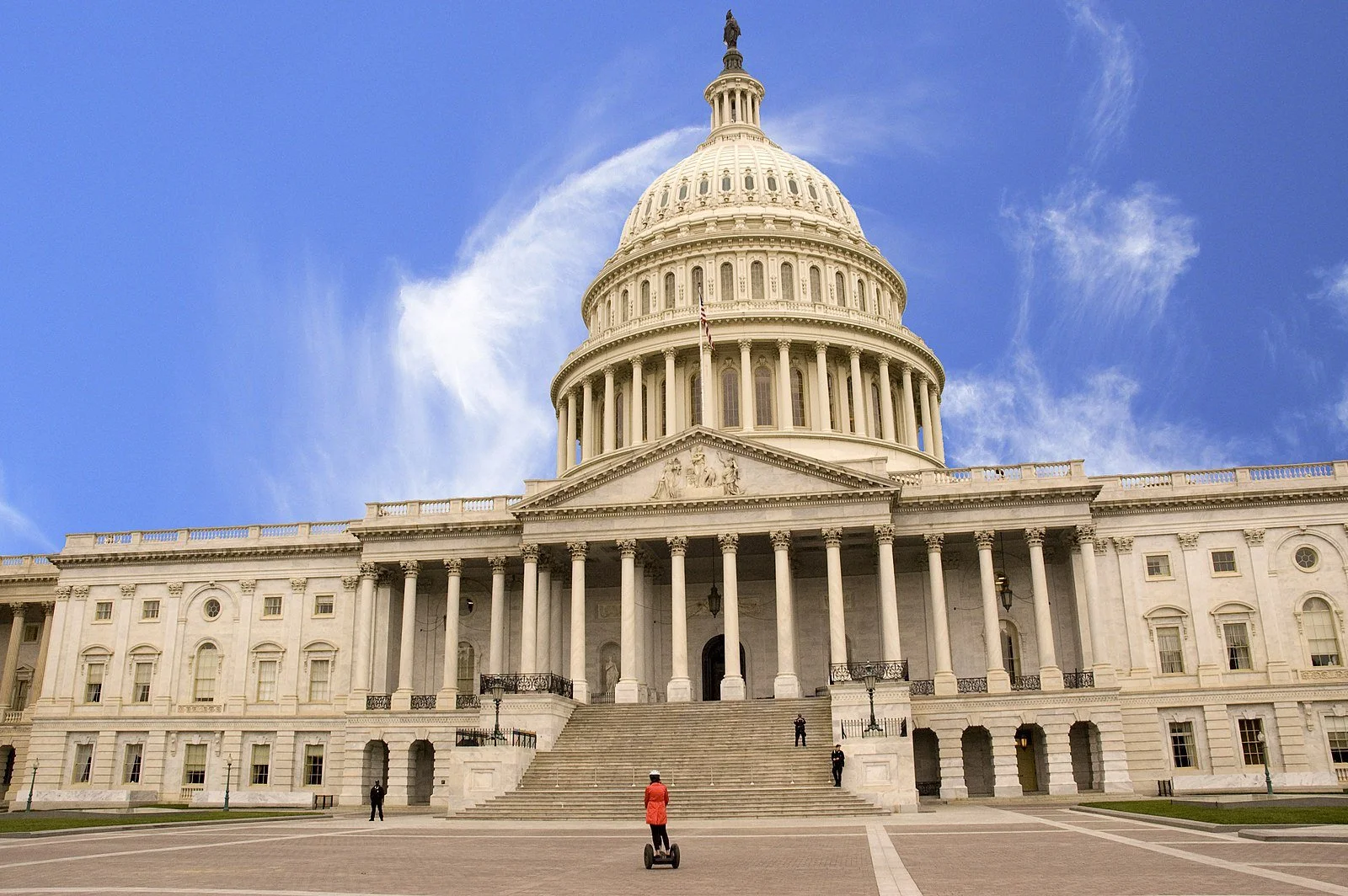Judith Heumann, mother of the disability rights movement, dies
Cochary Pub & Kitchen reopens after almost three-year hiatus
After being closed since the onset of the COVID-19 pandemic, the Cochary Pub & Kitchen in Blanchard Hall celebrated its reopening on the evening of March 2 with a night exclusive to members of the Class of 2023. The pub reopened to the entire student body the following night, allowing Mount Holyoke students to once again gather and dine in the space on the first floor of the Community Center.
Biden administration moves to tighten border restrictions in May
In a joint announcement on Feb. 21, the Department of Justice and the Department of Homeland Security described a new policy proposal from the Biden administration that would deny asylum to those entering the country illegally, as well as those who do not attempt or are unable to seek asylum in the countries they pass through as they migrate to the United States.
Association of Pan-African Unity hosts Black History Month Gala
On Sunday, Feb. 26, Mount Holyoke College’s Association of Pan-African Unity sponsored the annual Black History Month Gala at Chapin Auditorium with dinner, performances and a conversation with Interim President Beverly Daniel Tatum. This event was the culmination of the many events that took place as part of the College’s Black History Month programming, with each week highlighting the theme “_____ and Beauty.”
Author Sami Schalk speaks at 'Black Disability Politics’ event
Schalk began her presentation with the cover of the May 7, 1977, edition of the Black Panther Party’s newspaper, The Black Panther. It read, “handicapped win demands — end HEW occupation.” Schalk explained that cover stories, like this one, are kept for the most important issues at that moment, showing that the Party believed this sit-in to be a critically important issue directly connected to their work.
President Tatum gives presentation on state of the College to SGA senate
Before announcing its special guest on Feb. 21, senate began with the usual land acknowledgment. Skipping over E-Board updates, the senate quickly launched into a presentation given by Interim President Beverly Daniel Tatum. This presentation, announced earlier that week in the Dean’s Corner, gave information on the state of the College. More specifically, Tatum discussed the College’s recent focus on strategic planning.
SGA discusses recurring dining concerns and upcoming organization events
The senator for the class of 2024 mentioned concerns about the quality of the dining hall food. This is the second time that this issue has been brought up at the senate in the last two weeks. The senator stated that they had a friend who had found cardboard in their kale, and that, overall, they were concerned about the food standards. Senate leaders said they would, again, look into such concerns. They also stated that they were possibly looking into having Dining Services staff at an upcoming SGA Senate Town Hall.
Joe Biden addresses the country in his second SOTU
On Feb.7., at 7 p.m., President Joe Biden went before the United States House of Representatives to deliver the annual State of the Union (SOTU) address. A tradition that dates back to the first American president, George Washington, the State of the Union is given by the President of the United States about the current condition of the nation. The speech usually outlines the accomplishments of their administration, the challenges they face and their hopes for the future.
Texas lawsuit could nationally ban abortifacient
An Arizona legal group has sued a Texas agency for its approval of the abortion drug mifepristone. Photo courtesy of Jonathon Cutrer via Flickr.
Bryn Healy ’24 and Tara Monastesse ’25
News Editors
An ongoing lawsuit in Texas could potentially restrict nationwide access to the abortifacient drug mifepristone.
Alliance Defending Freedom, an Arizona conservative Christian legal group, sued the Food and Drug Administration in Amarillo, Texas, in an attempt to undo the agency’s approval of the abortion drug mifepristone, according to the Texas Tribune. The ADF, which defines itself as “the world’s largest legal organization committed to protecting religious freedom, free speech, the sanctity of life, parental rights and God’s design for marriage and family” per its website, was also a key player in overturning Roe v. Wade in 2022. The ADF is bringing the case to court on behalf of four doctors and four anti-choice organizations, according to the Texas Tribune.
The judge hearing the case is conservative Trump-appointee U.S. District Court Judge Matthew Kacsmaryk. Senator Dianne Feinstein, according to Ms. Magazine, described Kacsmaryk as “an anti-LGBT activist and culture warrior who does not respect the equal dignity of all people.” The Ms. article asserts that the ADF purposely chose to file suit in Amarillo in order to have Kacsmaryk rule on the case. If Judge Kacsmaryk or a higher court, in this case, the conservative Fifth Court of Appeals, rules against the drug, it could be banned in all 50 states.
The drug in question, mifepristone, was first approved by the FDA in 2000. It is used alongside misoprostol to terminate a pregnancy, according to the National Library of Medicine. It is also used for treating Cushing’s syndrome and uterine leiomyomas. Mifepristone works by blocking the pregnancy hormone progesterone and also stopping the inner uterine lining from preparing for ovum implantation. Additionally, the drug induces menstrual bleeding and further endometrial thickening to end a pregnancy.
“If the judge rules the FDA should ban mifepristone we are having the courts supersede what a science-based agency has decided,” Associate Professor of Politics Cora Fernandez Anderson stated. “For abortion, it will obviously pose challenges, but not insurmountable. One thing that not many people are talking about in the U.S. is that even if mifepristone is banned, misoprostol alone has a high rate of success, around [85 to 89 percent]. This is how most safe but illegal abortions happen in those countries with current bans since mifepristone is not available, and there are studies that show it’s completely safe. The WHO recommends both misoprostol alone or its combination with mifepristone for a safe self-managed abortion. So obviously we do not want mifepristone banned, but it is good to look to countries in which self-managed abortion has been happening with misoprostol alone for a while and know that this is safe and it will still be an option.”
“The side effects of misoprostol, especially at a higher dosage, are kind of intense,” Carrie N. Baker, Sylvia Dlugasch Bauman professor of American studies at Smith College and professor of the study of women and gender, said in an interview with Mount Holyoke News. “That said, people who get pregnant use it all around the world in countries where abortion is illegal, and as long as they are well-supported, it’s very effective, and it works. Obviously, people should have access to the best medication, but we’re in a situation here where anti-abortion people are trying to ban pills. It’s important that people know about misoprostol … it’s a widely available drug, and it’s much cheaper [than mifepristone]. It’s a good alternative in a situation where mifepristone is not available.”
Professor Baker described Massachusetts’s current access to abortion medication as “widespread,” noting that the online directory provided by Plan C, a public health campaign, is a useful resource for obtaining information regarding the availability of abortion access by state.
A regimen of mifepristone and misoprostol now comprises over 50 percent of abortions in the U.S., per the Texas Tribune. “Mifepristone is also used for incomplete miscarriages” according to Fernandez Anderson. The other uses of the drug are being elevated by advocates and legislators because “if there are other uses this would make the ban harder.”
An amicus brief was filed on Feb. 10 by the attorney generals of 22 states, including Massachusetts Attorney General Andrea Joy Campbell, in opposition to the demands requested by the ADF in the mifepristone lawsuit.
“Each of the amici [s]tates has an important interest in protecting the health, safety and rights of its residents, including an interest in ensuring safe access to essential reproductive health care. The continued availability of mifepristone for medication abortions is critical to safeguarding that interest,” the document’s introduction reads. Fernandez Anderson said it’s hard to know if this will have any impact on the ruling.
A press release by Illinois Attorney General Kwame Raoul, part of the coalition that filed the brief, writes that “[t]he availability of mifepristone has been particularly critical in providing access to abortion and miscarriage management in low-income, underserved and rural communities.
The coalition also asserts that revoking the FDA approval of mifepristone would force millions to seek more invasive and expensive procedural abortions, which would disproportionately harm those who already lack access to health care.”
“The Texas Attorney General’s efforts will please more than just anti-abortion advocates,” Assistant Professor of Politics Joanna Wuest explains. “Like many other lawsuits filed by conservative attorneys general, the larger aim is to limit the federal bureaucracy from regulating everything from healthcare to air pollution to finance. This specific case deals with the FDA’s ability to ensure access to safe and necessary medications, but the underlying legal arguments benefit Paxton’s donors in the oil industry who seek to similarly limit the Environmental Protection Agency’s (EPA) power over fossil fuel production. Last year, the Supreme Court’s decision in West Virginia v. EPA (2022) — which severely hampered the agency’s ability to clamp down on coal emissions — demonstrated how willing the conservative justices are to help Paxton and others realize this anti-regulatory goal.”
Additional time has been allotted to the plaintiffs to allow them to respond to a brief filed by the drug’s manufacturer, according to NPR. When the deadline expires on Feb. 24, Judge Kacsmaryk is expected to either make a decision in the case or schedule a hearing.










